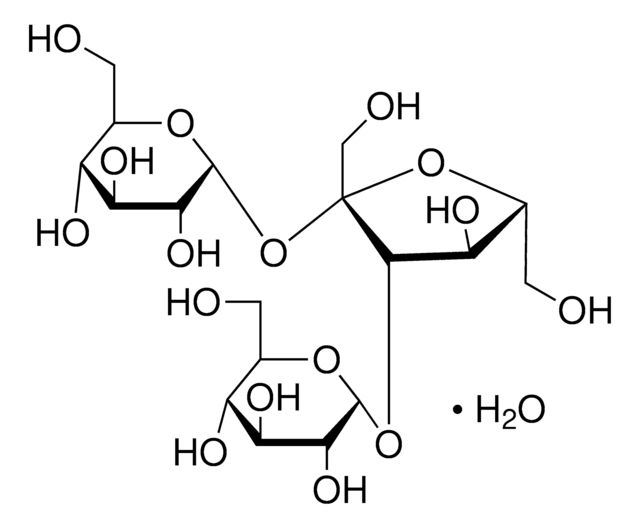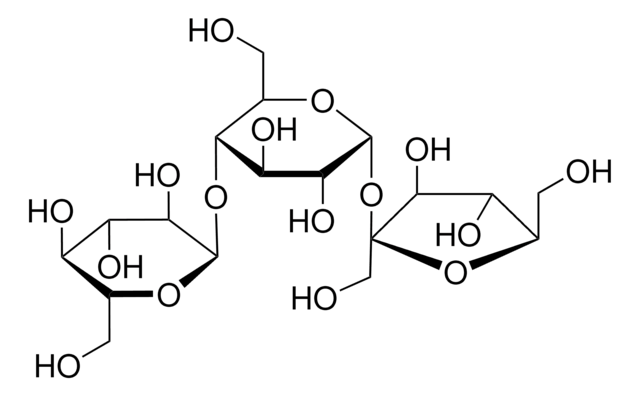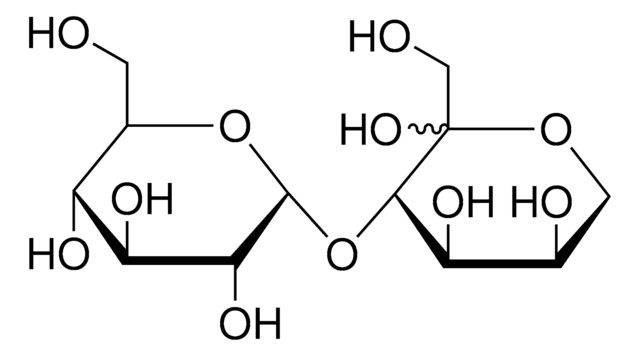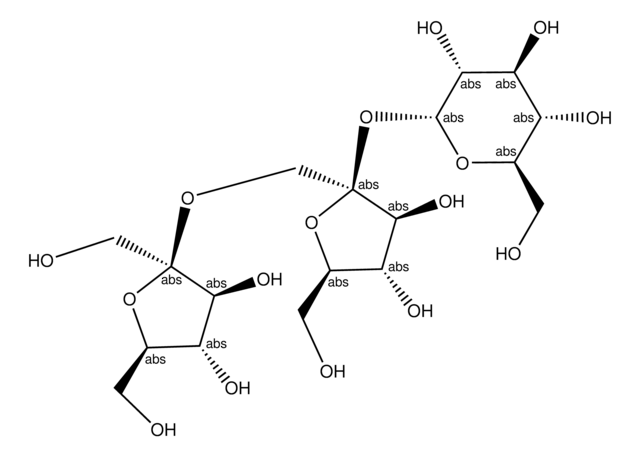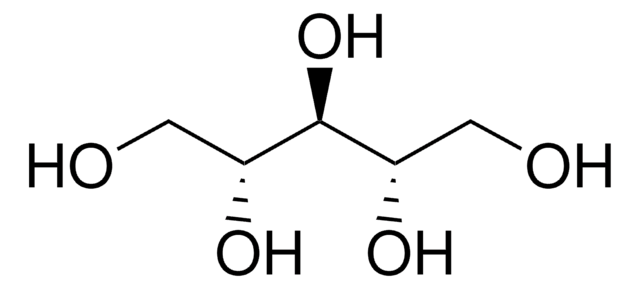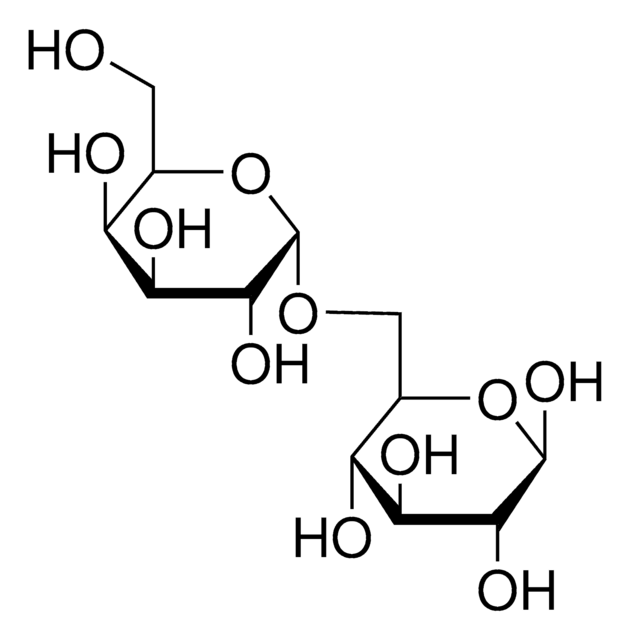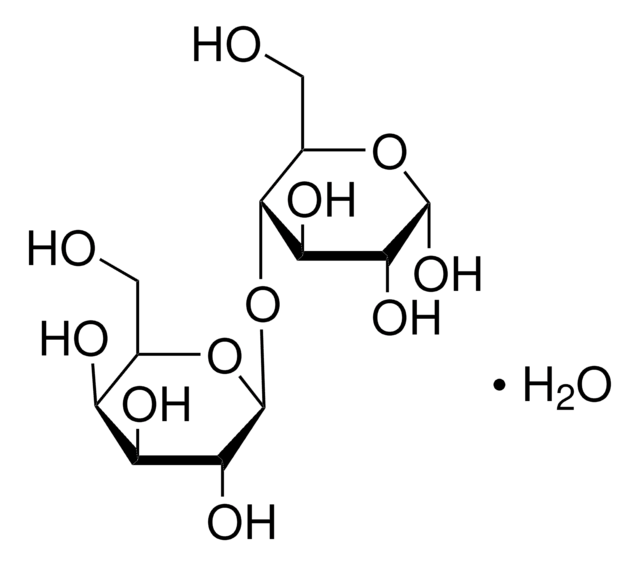M5375
D-(+)-Melezitose hydrate
≥97% (HPLC)
Synonym(s):
α-D-Glc-[1→3]-β-D-Fru-[2→1]-α-D-Glc
About This Item
Recommended Products
biological source
honey bee (honey)
Quality Level
Assay
≥97% (HPLC)
form
powder
optical activity
[α]/D 86.8 to 89.2 °, c = 4% (w/v) in water
color
white
mp
160 °C (dec.) (lit.)
solubility
water: 50 mg/mL, clear, colorless
storage temp.
room temp
SMILES string
[H]O[H].OC[C@H]1O[C@H](O[C@H]2[C@H](O)[C@@H](CO)O[C@@]2(CO)O[C@H]3O[C@H](CO)[C@@H](O)[C@H](O)[C@H]3O)[C@H](O)[C@@H](O)[C@@H]1O
InChI
1S/C18H32O16.H2O/c19-1-5-8(23)11(26)13(28)16(30-5)32-15-10(25)7(3-21)33-18(15,4-22)34-17-14(29)12(27)9(24)6(2-20)31-17;/h5-17,19-29H,1-4H2;1H2/t5-,6-,7-,8-,9-,10-,11+,12+,13-,14-,15+,16-,17-,18+;/m1./s1
InChI key
CFXAVQUXSYFPDE-ZDVKUAOASA-N
Looking for similar products? Visit Product Comparison Guide
General description
Application
Other Notes
Storage Class Code
11 - Combustible Solids
WGK
WGK 3
Flash Point(F)
Not applicable
Flash Point(C)
Not applicable
Personal Protective Equipment
Choose from one of the most recent versions:
Already Own This Product?
Find documentation for the products that you have recently purchased in the Document Library.
Customers Also Viewed
Our team of scientists has experience in all areas of research including Life Science, Material Science, Chemical Synthesis, Chromatography, Analytical and many others.
Contact Technical Service


